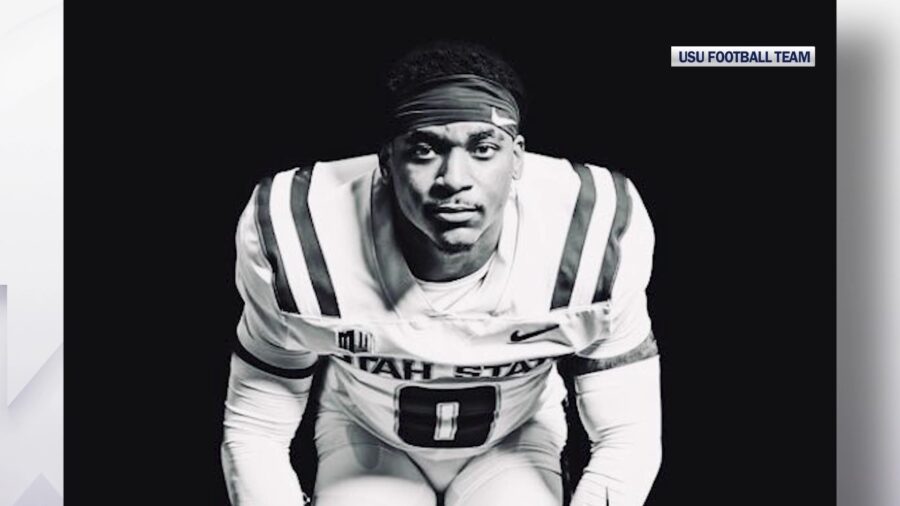Youth soccer league making changes after 25 reports of racism
May 28, 2024, 6:56 PM | Updated: 7:24 pm
SALT LAKE CITY — The Utah Youth Soccer Association, known as UYSA, is working to improve its response to racism on the soccer pitch.
The association reports 25 cases of racist comments in this past season. League Commissioner Scot Boyd provided the following data to KSL:
Fall 2023
Total games: 6,989 League Games
- Issues – total 12
- Parent to players – 3
- Comments brought up to ref but ref didn’t follow process – 2
- Player alleged racist comments – 3
- Racist comment on field didn’t tell ref – 1
- Player /parent /coach accuse re racist (calls against) – 2
- Process followed – 1
Spring 2024
Total games: 7,509 League Games
- Issues: 13
- Racist comments by players (usually n-word) – 6
- Team accuse ref of being racist due to calls / alleged comments – 2
- Parent racist comment (indefinite suspension) – 1
- Parent on parent – 1
- Process followed – 3
Of the 25 total issues, one resulted in a parent’s indefinite suspension.
“We have been aware, for the last couple of years, too many incidents were happening that we felt had racial undertones,” Boyd said.
Diego Godoy is the founder of Utah Rio Futbol Club and has four children who play soccer in Utah.
He said he and his friends have heard racist comments both on and off the field.
“The other players called him ‘monkey,’” Godoy said of his son. “And I said, ‘Why do you say that?’ And they’re like, ‘Well you’ve got big ears, and that’s why you’re a monkey.'”
Godoy said he feels the UYSA isn’t taking the issue seriously.
“When we start, try to complain about it, instead of having an answer, we have more complaints on top of that one,” Godoy said. “Like, ‘Oh, but we heard that this had happened.’”
He said his daughter once left the field crying because a coach on the other team made a discriminatory comparison of his daughter to a movie character.
“The coach was making fun of her, saying like, ‘Oh, don’t worry, we have our own Coco,’ regarding to the movie Coco,” Godoy said.
Godoy said he was punished by referees for speaking to his players in Spanish.
“Ninty percent of my players are Hispanic,” he said. “Even the white kids that I have, I speak in Spanish because they understand.”
Godoy said his club now records every game because of how frequently they encounter racism.
“It’s expensive to our club to spend money on these things, but we started getting so many issues,” he said.
Parent Jennifer Lambert was present was for one particular incident that was caught on camera.
“A particular player in a position that was upset with our coach, who was trying to get the ref’s attention to clarify a call that was made, wanted to verify, was not shouting, very calmly, trying to get the ref’s attention, and this position on the other team shouted at our coach to ‘Shut up and to go eat a taco,'” she recounted.
NAACP Utah ‘extremely disappointed’ about racist taunting of U of U women’s basketball team
She said, on another occasion, the atmosphere became very hostile during a game.
“We’re fine with competition; there’s no problem with that,” Lambert said. “However, the parents on the other side started shouting at us to go back to Mexico, which I thought, I didn’t quite understand that I heard it right.”
Lambert said she and her husband emailed UYSA to report both incidents.
“We were very detailed in our emails,” she said.
Lambert said they did not receive a response concerning the comments about Mexico. She said there was disciplinary action taken for the incident caught on camera, but she was disappointed by the other team’s response on the field.
“The coach on the opposing team wanted to make sure that they verified that they had the win, that that was the big concern,” she said.
Godoy said he has heard racist comments from other players, parents, coaches and even referees.
“It’s hard to see a kid with tears in their eyes, so we will like to see changes,” he said.
UYSA responds
Boyd said UYSA leadership takes racist incidents very seriously.
“We want to eliminate every single one of these incidents if we possibly can,” he said.
The association updated a zero-tolerance policy on discrimination this past season.
Boyd walked through the changes in a presentation in March. It includes a slide titled with the n-word ending in an “a.”
The slide reads, “UYSA was humiliated this last Summer when 3 of our players were ejected and then suspended for the entirety of Far West Regionals and Regional President’s Cup. DON’T USE IT!”
That slide, and others in the updated policy, include specific guidance to referees on how to respond in the moment a complaint is made.
“Now, if a statement is made, you get in touch with the referee,” he said. “You let the referee know the statement was made. The referee will stop the game, send both teams to the other sideline, talk to the complaining sideline, get the information, go back to the other sideline, explain what was going on.”
Boyd said the referee would then investigate immediately and talk to both coaches. He said typically, a verbal warning is issued.
“If the referee hears it and it’s a racist comment by a player on the field, they’re going to be ejected in almost all circumstances,” he said.
He said the same policy goes for parents.
“If the referee hears it, they’re going to eject the parent; they will then write up a report to me,” Boyd said.
Boyd is confident in this update but acknowledged that if it doesn’t work, they’re open to creating a multicultural board to investigate incidents of racism at games, something Godoy supports.
“We’re like kind of tired of the sent emails because we know what’s going to happen,” he said. He believes incidents of racism within the association are underreported.
Boyd said the most important thing to him is making sure players are heard.
“Right out of the gate, making sure they understand that it’s not them, it’s the other person. They’re one hundred percent at fault,” Boyd said. “And we don’t like that behavior, we don’t want that behavior, we don’t need those people there who are going to participate in that behavior.”












